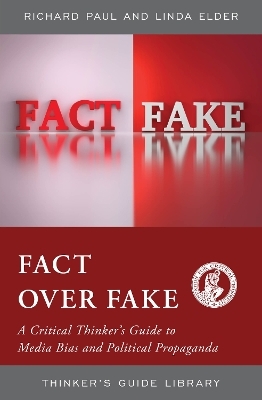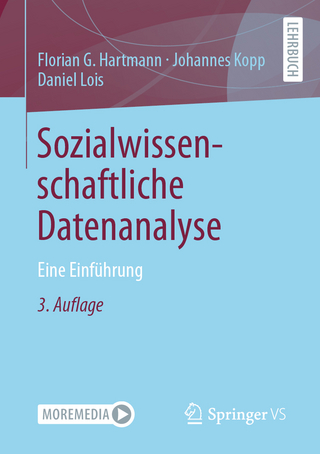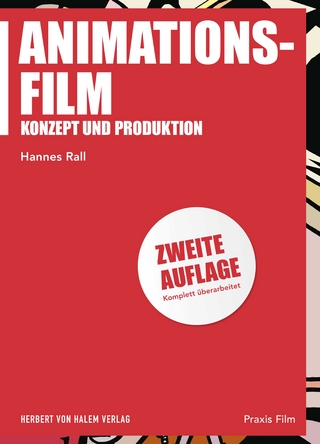
Fact over Fake
Rowman & Littlefield Publishers (Verlag)
978-1-5381-4394-0 (ISBN)
- Titel z.Zt. nicht lieferbar
- Versandkostenfrei innerhalb Deutschlands
- Auch auf Rechnung
- Verfügbarkeit in der Filiale vor Ort prüfen
- Artikel merken
Today’s instantaneous and ever-present news stream frequently presents a sensationalized or otherwise distorted view of the world, demanding constant critical engagement on the part of everyday citizens.
The Critical Thinker’s Guide to Bias, Lies, and Politics in the News reveals the power of critical thinking to make sense of overwhelming and often subjective media by detecting ideology, slant, and spin at work. Building off the Richard Paul and Linda Elder framework for critical thinking, Elder focuses on the internal logic of the news as well as societal influences on the media while illustrating essential elements of trustworthy journalism. With up-to-date discussions of social media, digital journalism, and political maneuvering inside and outside the fourth estate, Fact or Fake is an essential handbook for those who want to stay informed but not influenced by our modern news reporting systems.
Dr. Linda Elder is an educational psychologist who has taught both psychology and critical thinking at the college level. She has been President of the Foundation for Critical Thinking and the Executive Director of the Center for Critical Thinking for almost 25 years. She has a special interest in the relation of thought and emotion, as well as the cognitive and affective. She has developed an original theory of the stages of critical thinking development. Elder has coauthored four books on critical thinking, as well as all 23 titles found in the Thinker's Guide Library. Dr. Richard Paul was a leading proponent of critical thinking and through his work and legacy remains an international authority in the field. He founded the Center for Critical Thinking at Sonoma State University in 1980, followed by the Foundation for Critical Thinking. He developed concepts, principles, and theory essentials to a robust and fairminded conception of critical thinking and authored more than 200 articles and seven books on the topic. He presented workshops to hundreds of thousands of educators over his 35-year career as a leader in the critical thinking movement.
Introduction: Why Critical Thinking is Essential to Making Sense of the News
The Logic of the News Media
What is News?
Political Views in the News – Understanding the Liberal Mind
Political Influences, Advertising, and Group Think
Technological Noise in the News
What We Need the News Media to Do for Us
Chapter 1: Current Trends Affecting How We See the News
Key Critical Thinking Questions to Ask When Seeking the News
Realities That Impede Our Ability to Get Objective News
The Problem of Fake News
Social Media as an Unreliable News Source
Chapter 2: Essential Critical Thinking Tools for Understanding Media Logic
Defining Critical Thinking
A Comprehensive Approach to Critical Thinking
All Humans Use Their Thinking to Make Sense of the World
All Thinking Is Defined by the Eight Elements That Make It Up
Analyze Thinking Through its Elemental Structures
Question the Reasoning Embedded in a News Article
Question Your Own Reasoning While Reading the News
Reason Through News Articles, Editorials, and Stories – a Checklist
Evaluate Reasoning Through Critical Thinking Standards
Critical Thinking Standards for Assessing News Articles, Editorials, and
Stories
Defining Characteristics of the Disciplined Mind –
and How They Help Us See Through Bias and Propaganda
Rational or Irrational Tendencies Can Control the Mind
Humans Distort Reality Through Irrational Lenses
The Problem of Egocentric Thinking
The Problem of Sociocentric Thought
Chapter 3: Objectivity, Bias, and Underlying Agendas
Democracy and the News Media
Myths That Obscure the Logic of the News Media
Bias and Objectivity in the News Media
How the News Media Views Objectivity
Forms of Objectivity
The Perception of Bias in the Mainstream
Propaganda and News Story Writing
Protecting the Home Audience from Feelings of Guilt
How the News Media Fosters Sociocentric Thinking
Chapter 4: Become an Astute Media Consumer
How to Obtain Useful Information from Propaganda and Typical News Stories
Steps in Becoming a Critical Consumer of the News
Media Awareness of Media Bias
Sensitivity to Advertisers
Sensitivity to Politicians and the Government
Sensitivity to Powerful Interests
Sensitivity to Their Competitors
The Bias Toward “Novelty” and “Sensationalism”
Critical Consumers of the News
Dominant and Dissenting Views: Finding Alternative Sources of Information
Buried, Ignored, or Underreported Stories
Readings that Help You Become a More Independent Thinker
Chapter 5: The Future of the News
Is It Possible for the News Media to Reform?
Is the Emergence of a “Critical Society” Possible?
Afterword: How the Internet and Other Technologies Pervade Our Lives
How the Internet Works: The Big Picture
Assess a Given Website Using Critical Thinking Standards
Appendix: An Abbreviated Glossary of Critical Thinking Concepts and Terms
| Erscheinungsdatum | 24.05.2021 |
|---|---|
| Reihe/Serie | Thinker's Guide Library |
| Verlagsort | Lanham, MD |
| Sprache | englisch |
| Maße | 135 x 204 mm |
| Gewicht | 141 g |
| Themenwelt | Sozialwissenschaften ► Kommunikation / Medien ► Medienwissenschaft |
| Sozialwissenschaften ► Pädagogik | |
| Wirtschaft ► Betriebswirtschaft / Management ► Allgemeines / Lexika | |
| ISBN-10 | 1-5381-4394-1 / 1538143941 |
| ISBN-13 | 978-1-5381-4394-0 / 9781538143940 |
| Zustand | Neuware |
| Haben Sie eine Frage zum Produkt? |
aus dem Bereich


